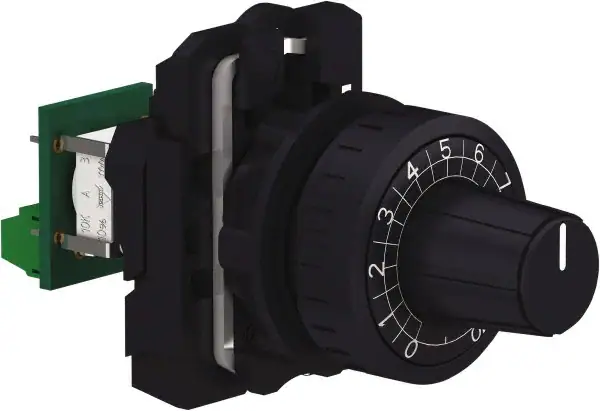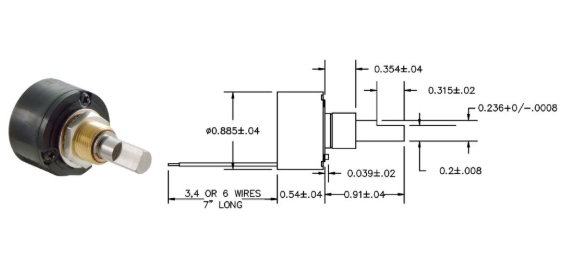Single-Turn vs Multi-Turn Potentiometers: Choosing the Right Sensor for Your Project

When selecting a potentiometer for your industrial project, understanding the differences between a single-turn potentiometer and a multi-turn potentiometer is crucial. These two types of potentiometers have distinct features and applications, making them suitable for different tasks within industrial control systems. In this blog, we will explore the key differences between these two potentiometers, their […]
Why Linear Potentiometers Are Crucial for Accurate Position Sensing in Robotics
When robotic systems lack precise movement, it disrupts entire operations. Accurate position sensing is essential; it differentiates reliable automation from prone-to-error motion. This is why we trust linear potentiometers. These devices provide reliable, real-time analog feedback, making them essential in industrial robotics. However, the effectiveness of potentiometers can vary. Understanding their proper application can significantly […]
How to Integrate Digikey Components into Your Industrial Automation Setup
Industrial automation focuses on coordination, precision, and reliability at scale. Selecting the right components is essential for ensuring your system responds in milliseconds rather than misfiring under pressure. This is where DigiKey steps in. With an extensive selection of automation-grade parts, rapid sourcing, and integration-ready designs, Digi-Key empowers you to take control of your production flow. However, […]
Understanding Valve Actuators: How They Control Flow and Pressure in Industrial Systems
Effective flow and pressure control are essential for optimizing industrial systems’ performance. Valve actuators are crucial tools that ensure this control, delivering rapid and precise responses while integrating advanced automation. By converting control signals into real-time valve movements, these actuators play a key role in maintaining system safety, stability, and efficiency. This convergence of industrial […]
Why ETI Systems’ Potentiometers are Trusted by Engineers Worldwide
Every component in a control system is important, but few impact accuracy and signal integrity as significantly as potentiometers. Despite their small size, these devices play a crucial role in determining feedback quality, input precision, and operational reliability in real-world applications. Engineers use potentiometers in various fields, from aerospace to industrial automation, and they choose them […]
The Role of Actuators in Improving Manufacturing Automation and Performance
If you’re aiming for better output, tighter tolerances, and fewer errors on the line, start by looking at your Actuators. These small yet powerful devices are the backbone of industrial automation, quietly ensuring that machines move exactly when and how they should. Why Actuators Matter in Modern Manufacturing Actuators are essential components that convert energy, typically […]
Choosing the Right Industrial Joystick for Position Control Applications
Precision control depends greatly on your interface. A high-quality industrial joystick acts as an extension of the operator’s intent. In critical environments such as automation lines, military machinery, and advanced robotics, every input must be both accurate and durable. Choosing the right joystick is essential for accurate signals and fluid movements. If your equipment demands […]
Multi-Turn vs. Single-Turn Potentiometers: Which One Should You Use?
Choosing the right potentiometer can make or break your design. For engineers and designers working on motion systems or control panels, understanding the difference between a multi-turn potentiometer and a single-turn potentiometer is essential. Each type serves a different purpose based on how much precision, resistance range, and control your application requires. In this guide, […]
Potentiometers vs. Encoders: Which One Is Right for Your Application?

When it comes to motion control, accuracy matters. Whether you’re building machinery, controlling a robotic arm, or monitoring actuator position, the sensor you choose will impact performance, reliability, and overall system efficiency. In this guide, we’ll break down the differences between potentiometers and encoders, helping you understand how each one works and where they fit […]
Understanding Potentiometers: Types, Uses, and Industrial Applications

It was about the early days of electrical innovation, when there was a desperate need for a device that could regulate the energy flow. Although electrical signal regulation was studied in the 1800s, the idea of the potentiometer did not come into being until 1841. Thomas Edison created the first functional carbon potentiometer in 1872, […]
